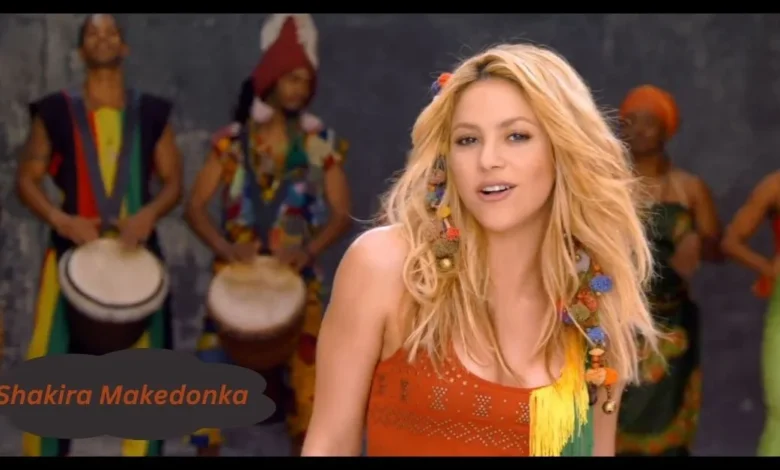The Ultimate Guide to Shakira’s Makedonka: A Cultural Exploration
The Ultimate Guide to Shakira's Makedonka: A Cultural Exploration

Introduction:
The phrase shakira makedonka evokes curiosity and intrigue, blending the globally recognized name of the Colombian superstar Shakira with an unusual surname that sounds Eastern European or Balkan. While at first glance this combination may seem random or fabricated, it opens the door to a deeper exploration of online identity, viral culture, and how digital spaces shape the way we view names, personas, and cultural hybrids. In this article, we dive into the layers of “Shakira Makedonka,” whether as a meme, a mistaken identity, or an internet phenomenon, to understand the roots and implications of such cultural mashups.
Origins of the Name “Shakira Makedonka”
The name “Shakira Makedonka” doesn’t exist in any official records, celebrity databases, or music archives, but it has popped up in internet search trends and social discussions. The juxtaposition of “Shakira,” an international pop icon known for her Latin hits and dynamic dance performances, with “Makedonka,” a name resembling Macedonian or Balkan heritage, creates a dissonance that captures attention. It might have originated as a meme, a satirical username, or an attempt at reimagining the singer through the lens of another cultural context. In online communities, these playful rebrandings often go viral quickly, especially when they blend familiar celebrity identities with unfamiliar cultural labels, prompting reactions ranging from laughter to confusion. The roots may lie in parody culture, TikTok usernames, or even fan fiction communities where alternative identities are created for fun or commentary.
Internet Culture and the Rise of Bizarre Name Blends
In the digital age, names like “Shakira Makedonka” are not just rare oddities but are part of a growing trend of surreal humor and internet absurdism. Social media platforms like TikTok, Twitter, and Instagram have become breeding grounds for these unconventional name blends that often have no real-world meaning but go viral because of their strange familiarity. This trend reflects how humor has evolved in online spaces—from simple jokes to more abstract forms of satire where randomness is key. These names are sometimes used to dodge copyright filters, create alter egos, or just entertain a niche audience that enjoys unexpected cultural crossovers. It also shows how easily the internet blurs lines between reality and fiction, allowing users to remix well-known personalities into entirely new characters.
The Influence of Shakira’s Global Image
Part of what makes “Shakira Makedonka” resonate so oddly is the weight of Shakira’s brand itself. As a multilingual, cross-genre artist with a foot in both Western pop and Latin culture, Shakira is already a hybrid figure. Her identity is global, and her name alone carries recognition across continents. When her first name is repurposed or fused with something unexpected, it automatically draws curiosity. This is a testament to her lasting influence and the fact that her celebrity status transcends music—it touches fashion, politics, and global cultural movements. Whether used seriously or as part of a meme, her name has enough cultural capital that attaching it to something strange or out-of-place, like “Makedonka,” instantly creates viral potential.
Possible Meanings Behind “Makedonka”
While the first name is straightforward, the surname “Makedonka” might hold deeper meaning. Linguistically, it sounds like a feminized form of “Macedonian” in some Slavic languages. It could be interpreted as a playful fictional name for a woman from Macedonia or the Balkans, blending a national identity with a recognizable global brand. Alternatively, it may simply be a humorous fabrication with no real linguistic intent. In either case, this kind of naming often reflects how the internet mixes cultures in surprising ways—sometimes respectfully, sometimes satirically, and sometimes just for the sake of randomness. It opens a conversation about digital naming practices, online humor, and how people project fictional or symbolic meanings onto familiar names.
The Role of Satire and Meme Culture
If “Shakira Makedonka” exists as a meme, it fits into a broader genre of satirical reimaginings. The internet is full of alternate versions of celebrities with exaggerated names, distorted backstories, or fictional nationalities. These versions often serve as humorous critiques of celebrity culture, where image matters more than authenticity. In the case of “Shakira Makedonka,” the satire may lie in imagining a world where a global star like Shakira comes from a tiny Balkan village, dances to folk beats instead of reggaeton, and performs at village fairs instead of stadiums. These absurd mental images feed a unique type of internet humor that thrives on contrast and incongruity. It’s less about mocking the real person and more about playing with the iconography in a creative, often ridiculous way.
Conclusion: A Digital Folklore Phenomenon
Ultimately, “Shakira Makedonka” stands as an example of how digital folklore is born. It is a name without a real person behind it, but with layers of cultural association, humor, and internet creativity. Whether it’s a pseudonym, a fan creation, or just a random viral joke, it reflects how language and identity are constantly being reshaped online. In a world where memes travel faster than news, names like these become part of an ongoing conversation about fame, identity, and digital play. As we continue to blur the lines between the real and the fictional in online spaces, names like “Shakira Makedonka” will keep popping up—confusing, amusing, and provoking thought in equal measure.



